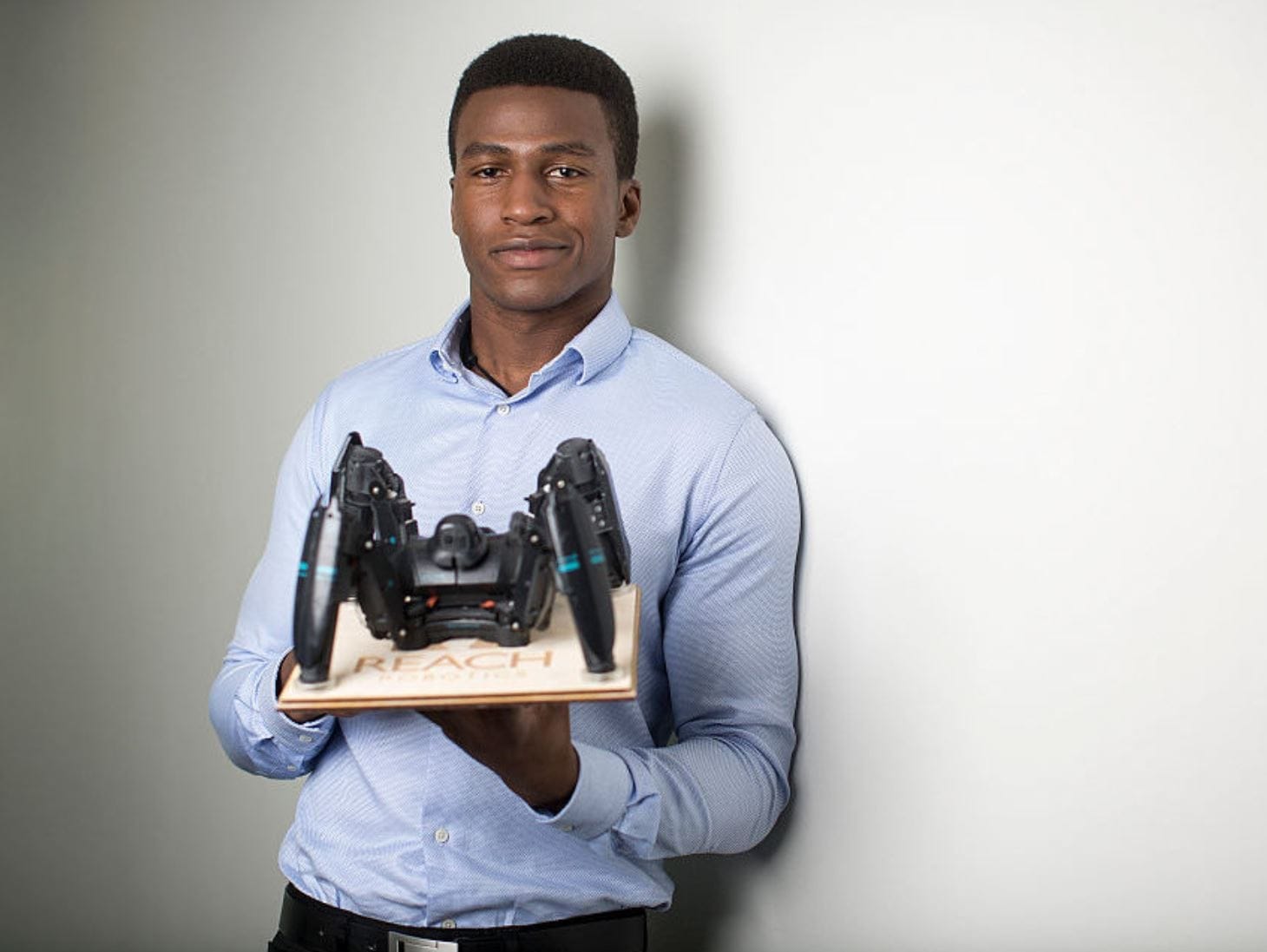The robotics space rarely accommodates failure and even less often, reinvention. Yet Silas Adekunle has done both.
First gaining global attention as the young mind behind a gaming robot that landed in Apple stores, Adekunle has since shifted his focus from consumer tech to building systems that serve science, education, and industry.
His path doesn’t read like a conventional tech success story. It moves across geographies and disciplines, shaped as much by setbacks as by accolades. From a childhood in Lagos to a career shaped in the United Kingdom, Adekunle has emerged not just as an inventor of machines, but as a designer of long-term systems, especially those tailored to Africa’s future-facing challenges.
ALSO READ: Omeife: Africa’s First Humanoid Robot Enters the Global Tech Spotlight
From MekaMon to Market Lessons
Adekunle entered the global spotlight in 2017 with MekaMon, a four-legged robot designed for interactive, augmented reality gaming. It was a technical breakthrough: customizable, lifelike in motion, and deeply engaging. Through Reach Robotics, the startup he co-founded, the robot was developed as a hybrid of entertainment and education.
The robot’s novelty earned it placement in Apple’s US and UK stores and brought in millions in investment. For a brief moment, it seemed Adekunle had cracked the notoriously difficult consumer robotics market. But by 2019, Reach Robotics shut down, a decision Adekunle described as driven by “the consumer robotics space not being the easiest route to scale sustainably.” The closure, rather than a dead-end, became a pivot point.
A Shift Toward Purpose-Led Engineering
Out of Reach Robotics came two new ventures: Reach Industries and Awarri.
Through Reach Industries, Adekunle and his team developed Lumi, a visual automation platform for laboratories. Lumi uses computer vision and AI to help scientists manage experiments, monitor data, and minimize human error in complex lab environments.
The shift marked a decisive move from consumer-facing tech to infrastructure that supports research, pharmaceuticals, and healthcare.
ALSO READ: Folake Soetan: Rewiring Nigeria’s Power Narrative
Awarri, on the other hand, reflects a more personal mission: to close the knowledge and accessibility gap in Africa’s tech education landscape. The initiative supports robotics and AI learning through custom hardware kits, educator training, and local engagement. It’s a bid to raise a generation of African innovators equipped not just to use technology, but to create it.
Experience, Not Hype
What sets Adekunle apart is not just what he builds, but how he recalibrates. His education in robotics engineering earned at the University of the West of England, laid a strong foundation. But his career has been more defined by iteration than early success.
That iterative spirit is visible in his approach to business and impact. His ventures don’t chase attention for their novelty alone. They are designed for real-world utility: platforms that automate precision lab work, learning tools that reach underserved communities, and strategies that rethink how African youth engage with STEM disciplines.
Adekunle has consistently rejected the “one-big-launch” model. Instead, he builds quietly, pivots early, and focuses on use cases that stand the test of time.
Where He’s Headed
With Reach Industries growing its partnerships in the biotech and research sectors, and Awarri scaling its footprint across African schools and training centers, Adekunle’s current work reflects a deepening of purpose. These are not short-term products. They are frameworks aimed at long-term capability building.
His recognition, Forbes 30 Under 30, FT’s Top 100 Minority Tech Leaders, and an honorary doctorate in technology, is less important than the work that continues beyond those accolades.
From designing robots that teach code, to creating platforms that aid scientific discovery, Silas Adekunle’s legacy is not anchored in any single machine. It lies in how he uses technology to widen access, deepen impact, and challenge the limits of what African-led innovation can look like on a global stage.

